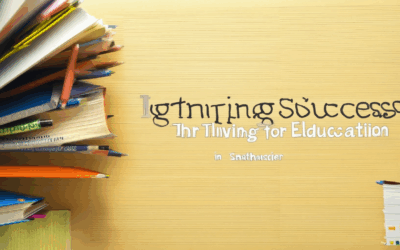College enrollment is a pivotal step in shaping one’s future, yet many students encounter challenges along the way. Whether it’s navigating complex application processes, managing academic pressures, or overcoming personal obstacles, finding the right college enrollment support can make all the difference. This guide explores essential strategies and resources designed to empower every student, offering insights into how to thrive during this transformative phase. From understanding common struggles to discovering effective tools and services, we delve into practical solutions that cater to diverse needs. By leveraging college support programs and exploring innovative enrollment strategies, readers can unlock their potential and embark on a successful academic journey. Join us as we uncover how to navigate the complexities of college enrollment with confidence and clarity.
Key Takeaways
– Streamline College Enrollment Processes: Effectively manage student lifecycles from inquiry to graduation, ensuring institutions meet mission goals and support student success.
– Leverage Data-Driven Strategies: Use analytics to track student progress, assess institutional effectiveness, and address challenges to improve retention and completion rates.
– Enhance Student Support Services: Provide academic advising, mental health resources, and career counseling to create inclusive environments that foster belonging and motivation.
– Role of Enrollment Specialists: Assist students with applications, evaluate qualifications, guide financial aid decisions, and connect them with college representatives.
– Enrollment Advisors Drive Success: Advocate for students, collaborate on enrollment strategies, and support recruitment and transitions, ensuring seamless academic journeys.
– Utilize Technology: Employ systems like SIS to monitor progress and manage data, streamlining processes and driving informed decision-making.
– Invest in Resources: Secure funding through tuition, grants, and philanthropy to sustain operations and invest in academic programs.
– Competitive Edge: Stay ahead of competitors by offering comprehensive support solutions and resources tailored to student needs.
How to Support a Struggling College Student
Supporting a struggling college student involves addressing various aspects of their well-being and academic progress. Here’s a structured approach to help:
- Academic Support
- Assist with study habits and time management.
- Provide access to study guides and tutorial resources.
- Encourage participation in study groups or peer mentoring programs.
- Recommend academic workshops or tutoring services.
- Mental Health and Wellness
- Be approachable and listen to their concerns.
- Share information about counseling services and mental health resources.
- Introduce mindfulness or stress management techniques.
- Organize group activities to foster social connections.
- Financial Assistance
- Guide them toward applying for grants, scholarships, or financial aid.
- Share resources for part-time jobs or internships.
- Advise on budgeting and money management skills.
- Connect them with organizations offering tuition assistance.
- Career Planning
- Help them explore career options and internships.
- Offer resume building and interview preparation tips.
- Introduce networking opportunities with professionals.
- Provide guidance on setting short-term and long-term goals.
Why Are Colleges Facing Enrollment Challenges?
Colleges are encountering enrollment issues due to a combination of demographic, economic, and societal factors:
- Economic Downturns : Economic recessions often lead to reduced college enrollment as individuals prioritize employment stability over further education. This trend is evident during periods of high unemployment, as students and families may delay or forego higher education pursuits.
- Declining Birth Rates : The U.S. has experienced a steady decline in birth rates since the mid-20th century, leading to a shrinking pool of college-aged individuals. This demographic shift, often referred to as the “enrollment cliff,” is projected to worsen after 2025, potentially reducing college enrollment numbers significantly.
- Impact of Past Events : The COVID-19 pandemic exacerbated existing challenges, with many students experiencing disruptions in their education. While graduate enrollment saw some recovery, undergraduate enrollment remained impacted, reflecting broader economic and psychological effects on students and families.
- Shifts in Educational Preferences : The rise of online learning platforms and alternative education models, such as coding bootcamps and vocational training, has diverted attention away from traditional colleges. Students are increasingly drawn to programs offering specific skill development and flexible learning opportunities.
- Demographic Shifts : Changes in family structures, including single-parent households and blended families, can influence college attendance. Additionally, financial constraints within households may deter students from pursuing higher education.
- Social and Cultural Factors : The pursuit of alternative pathways, such as trade schools or apprenticeships, alongside concerns about student debt, have contributed to decreased interest in traditional college routes.
- Competition Among Institutions : The growing number of colleges and universities has intensified competition for students. This dynamic can lead to overcapacity in some institutions and underenrollment in others, particularly those without strong differentiation in offerings or branding.
- Globalization Trends : An increasing number of students pursue international opportunities, whether through study abroad programs or career prospects abroad, leading to a reduction in domestic college applications.
- Tuition Costs : Rising tuition fees and associated student debt burdens can deter prospective students, particularly from lower-income backgrounds, limiting college access and participation.
These multifaceted challenges highlight the need for colleges to adapt strategically, possibly through program diversification, cost reductions, and innovative marketing strategies to mitigate enrollment declines and ensure accessibility to a broad range of students.
Can You Hire Someone to Help You Apply for College?
Yes, you can hire someone to assist you with your college application process. College admissions consulting services can provide valuable support tailored to your unique needs and goals. Here are some key reasons why hiring a professional might be beneficial:
- Expert Guidance: Admissions consultants often have extensive experience with college applications and can offer insights into what colleges are looking for in applicants.
- Personalized Approach: These professionals can analyze your academic record, extracurricular activities, and personal achievements to help you create a standout application.
- Competitive Edge: In a highly competitive environment, having a skilled advisor can give you an edge by helping you identify strengths and weaknesses early in the process.
- Stress Reduction: Dealing with the college application process can be overwhelming. A consultant can help you stay organized and focused, reducing the stress associated with this important milestone.
If you’re considering hiring a service, Enroll Maven is a trusted resource that offers comprehensive college application guidance. Their team of experts can assist with everything from essay writing to interview preparation. Additionally, platforms like College Coach and IvyWise provide similar services, catering to diverse student needs.
What is Enrollment Management in College?
Enrollment management in colleges is a multifaceted process that encompasses various functions aimed at effectively managing the lifecycle of students from their initial inquiry to their eventual graduation. This critical area ensures that institutions can meet their mission goals, maintain financial stability, and provide a supportive environment for student success.
Key Components of Enrollment Management:
- Recruiting
- Attracting and identifying prospective students who align with the college’s mission and values.
- Implementing strategies such as school visits, open houses, and scholarship programs to engage potential applicants.
- Funding
- Securing resources through tuition, grants, endowments, and philanthropic contributions.
- Managing budgets to ensure operational sustainability and investment in academic programs.
- Tracking
- Monitoring student progress, performance, and engagement throughout their academic journey.
- Utilizing data analytics to assess institutional effectiveness and student outcomes.
- Retaining
- Providing support services such as academic advising, mental health resources, and career counseling to enhance student retention.
- Creating inclusive environments that foster belonging and motivation among students.
- Replacing
- Addressing student attrition by identifying root causes and implementing interventions.
- Analyzing data to develop strategies that reduce withdrawal rates and improve completion rates.
Impact of Enrollment Management:
Effective enrollment management directly influences a college’s ability to grow, diversify its student body, and allocate resources efficiently. It plays a pivotal role in achieving institutional goals, ensuring long-term sustainability, and fostering student success.
By thoughtfully integrating these components, colleges can create a cohesive and dynamic approach to enrollment, ultimately enriching the educational experiences of their students and contributing to the higher education landscape.
What is a College Enrollment Specialist?
A college enrollment specialist is a professional who assists prospective students with the college admission process, ensuring they receive the support needed to enroll in a college or university. Their primary responsibilities include providing admissions counseling, evaluating applications, and guiding students through the enrollment process.
Responsibilities
- Assisting students with college applications and application materials.
- Evaluating applicants based on academic records, test scores, and personal statements.
- Providing guidance on financial aid, scholarships, and tuition costs.
- Answering questions about programs, campus life, and academic opportunities.
- Working closely with high school counselors, teachers, and parents.
- Organizing and leading group tours and open houses.
- Processing transcripts and other required documents.
- Staying updated on college policies and admission criteria.
Key Skills
- Strong communication and interpersonal skills.
- Attention to detail and organizational abilities.
- Knowledge of college admission requirements and policies.
- Ability to work independently and as part of a team.
- Familiarity with financial aid and scholarship programs.
- Proficiency in computer software used for recordkeeping and reporting.
Competitors
- Northwest State Community College
- Eastern Gateway Community College
- Southwest Technical College
- Central Ohio Technical College
Enroll Maven provides comprehensive resources and guides to help students navigate the college enrollment process. For more information, visit our College Planning Guide or explore our Educational Blog .
What Do Enrollment Advisors Do?
Enrollment advisors play a pivotal role in supporting students throughout their academic journey, ensuring they navigate the complexities of enrollment processes effectively. Their primary responsibilities revolve around:
- Student Advocacy: Enrollment advisors act as champions for students, assisting them in overcoming challenges such as course selection, academic planning, and resolving issues related to financial aid or academic standing.
- Collaboration: They work closely with academic advisors, faculty, and administrators to develop enrollment strategies aligned with institutional goals, ensuring a cohesive approach to student support.
- Recruitment and Transition: Enrollment advisors engage with prospective students, particularly those in high schools, and assist transfer students in seamless transitions, often participating in recruitment events and counseling sessions.
- Technology Utilization: Leveraging systems like Student Information Systems (SIS), they monitor student progress and manage enrollment data to drive informed decision-making and streamline processes.
Their efforts contribute significantly to student success, retention rates, and institutional growth. By addressing barriers and fostering a supportive environment, enrollment advisors are instrumental in enhancing overall academic outcomes.
For further exploration of enrollment strategies and resources, consider visiting Enroll Maven , a comprehensive platform offering valuable insights and guidance for students, parents, and educators alike.
Conclusion: Enrollment advisors are dedicated professionals who play a critical role in ensuring students thrive academically and institutionally. Their contributions are essential for building a resilient and successful educational community.









0 Comments